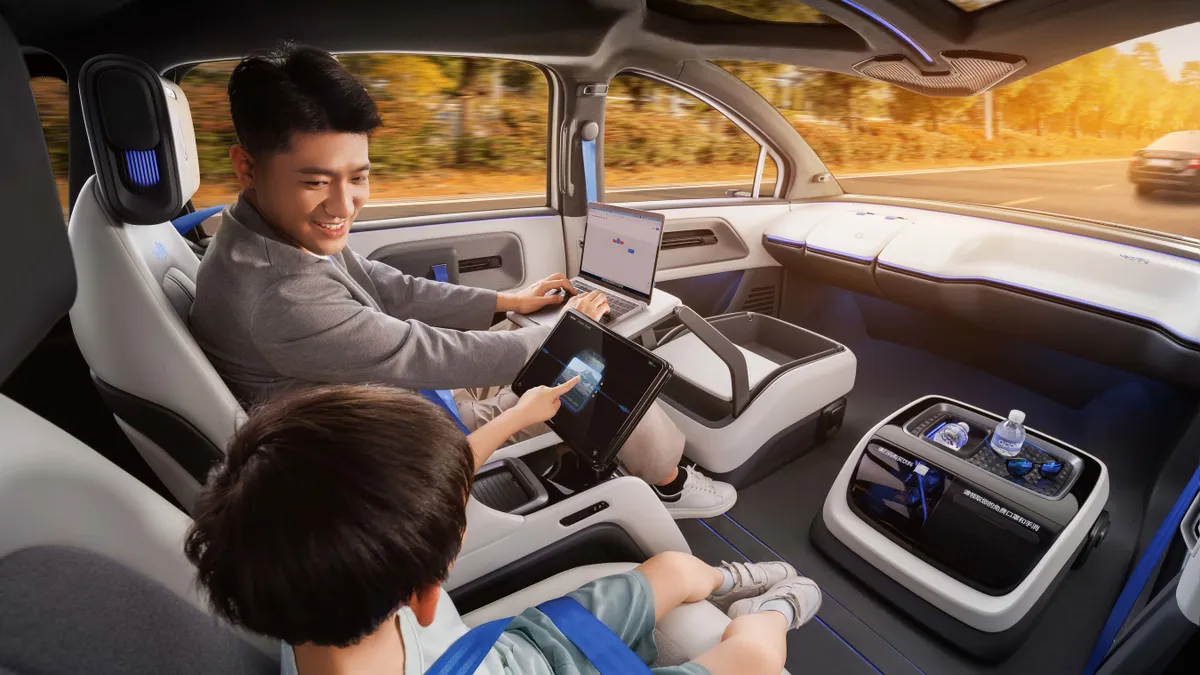Dive Brief:
- China's Ministry of Industry and Information Technology will support the commercial development of Level-3 and higher autonomous driving technology driving in the country, media outlet Gasgoo reported.
- The agency is focused on collaboration among companies, building infrastructure for cellular vehicle-to-everything technology and Level-3 pilot projects.
- MIIT also said it would release updated guidelines for intelligent connected vehicles that communicate with infrastructure, such as traffic lights and roadside sensors.
Dive Insight:
With the support of the Chinese government, a larger number of Level-3 autonomous vehicles may soon be operating on public roads in the country. These driverless vehicles, which include robotaxis, can operate without human supervision in certain situations.
China’s MIIT is encouraging collaboration to speed up innovation and recommended new research and application of technologies to support the rollout of L3 and higher autonomous driving, according to Gasgoo. Those recommendations include developing semiconductors, sensors and operating systems that support autonomous driving.
The comments were made at a press conference held by the State Council Information Office this week to discuss measures to support the development of China’s new energy vehicle industry.
Launching autonomous driving pilot projects and conducting city-level demonstrations of L3 autonomous driving technology is also contributing to its expansion in Chinese cities, according to Gasgoo.
As regulations surrounding the deployment of L3 autonomous driving technology in the U.S. are limited to just Nevada and California for Mercedes-Benz’s L3 Drive Pilot system, China is emerging as a global leader in autonomous driving development with backing from state government and the MIIT.
The autonomous driving market in China could reach $98.89 billion by 2030, according to a March 2022 report from Research and Markets.
Baidu is one of China’s leading developers of autonomous driving technology. According to Guidehouse Insights, the technology company is among the leading autonomous driving vendors in the world. In March, Baidu became the first company to provide fully driverless ride-hailing services in Beijing.
The company launched the vehicles as part of its “Apollo Go” autonomous ride-hailing service, which is similar to Uber. Fully driverless Apollo Go vehicles also operate on public roads in Wuhan, Shenzhen and Chongqing.
Apollo Go provided roughly 600,000 rides in the first quarter of 2023, a 236% jump year over year, according to a May 2023 press release. Cumulative rides exceeded 2 million by the end of January 2023, ranking Baidu as the world's largest autonomous ride-hailing service provider, according to a press release.
Apollo Go is focused on accelerating the commercialization of L3 autonomous driving and will likely be a key player in China's emerging automated mobility sector














